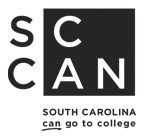INTRO
Every year, millions of students take advantage of the Federal Work-Study (FWS) program, holding down jobs both on-campus and off-campus. If you’re eligible for work-study, a school will figure it in on your financial aid award letter. Work-study is a great way to help pay for tuition, books, and room and board — and the possibilities are endless. You could take a service-related job at a local community center, or work in an academic department at your school. If you’re a night owl, you could work a late shift in the library. If you’re an early riser, you could help serve breakfast in the student commons. And while the total amount you make can’t exceed your work-study award for the year, it’s smart to make the most you can. Work-study can also be a good distraction during a tough day of classes and studying. If work-study is part of your award, it means the money has already been set aside for you, so don’t miss out. Get to work!
MORE
Federal Work-Study Program
The Federal Work-Study (FWS) program gives part-time jobs to undergraduate and graduate students with financial need. You can work to make money to pay for education expenses, including tuition, books, and room and board. If you are eligible, your college or university will include work-study in your financial aid award letter.
What can I do?
The FWS program encourages community service, as well as work related to what you’re studying in school. You’ll make at least the current federal minimum wage. Some earn more, but it depends on what you’re doing and what skills are required.
How am I paid?
Your total award will depend on when you apply, your level of financial need and the funding level of your school. If you’re an undergraduate, you’ll be paid by the hour. If you’re a graduate student, you might receive a salary. Either way, your school must pay you at least once a month. Also, your school must pay you directly.
Where will I work?
FWS jobs can be on or off campus. If you work on campus, you’ll usually work for your school. If you work off campus, you will usually work for a private non-profit organization or a public agency. Generally, the work performed off campus must be in the public interest, which means it must benefit some portion of the general public.
How much can I work?
You can’t earn more than your total award. Also, when scheduling your work, your employer or financial aid administrator will look at your class schedule and your academic progress to make sure you’re keeping up in school and maintaining a good balance between work and study.

